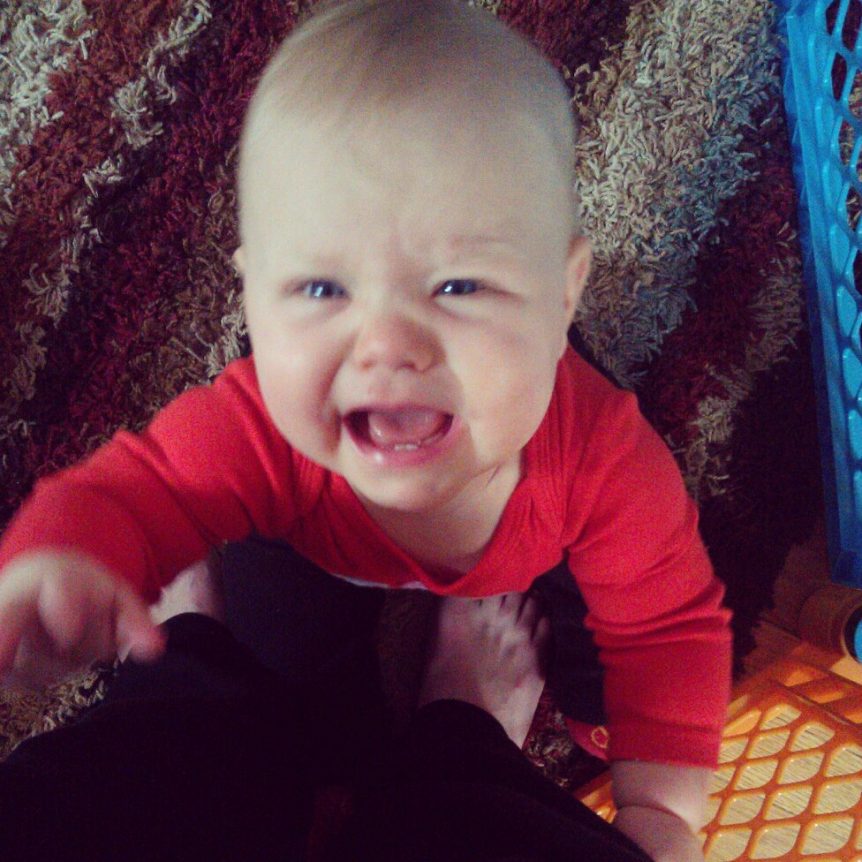 Despair–it’s an awful thing, isn’t it? When we’re eight months old, it can be satisfied with a bottle of warm milk. When we’re eight, eighteen, eighty years old–or any age in between–it’s gonna take more than warm milk to stem the emotional tide of despair.
Despair–it’s an awful thing, isn’t it? When we’re eight months old, it can be satisfied with a bottle of warm milk. When we’re eight, eighteen, eighty years old–or any age in between–it’s gonna take more than warm milk to stem the emotional tide of despair.
Where We’ve Been…
In last week’s blog post, we talked about the possibility of Terah’s and Abram’s betrayal—Joseph’s great-grandfathers—and the ways they might have betrayed or felt betrayed by each other. (CLICK HERE for that thought-provoking background on Joseph’s family history.)
Abra(ha)m’s father, Terah, was the first in their family to be called by Elohim—the One God—to leave Ur and travel to Canaan. Ur was a city in Mesopotamia whose citizens worshiped a pantheon of ancient gods dating back to a Creation story similar to the one in our Bible.
Terah and Abram left the counterfeit legends of imaginary gods to follow the single Creator. As descendants of Noah’s son, Shem, they were guardians of the Bible stories we know today as absolute Truth. These stories were passed down in songs so every detail would be remembered exactly as it had been sung for millennia. One could forget a detail or two about stories or a few lines of a poem, but treasured songs replay in our minds word-for-word, year after year.
By the time Moses actually wrote the stories we read in Genesis, each word had been recited in song for generations exactly as they’d been sung by Terah then Abraham then Isaac then Jacob and then by his twelve sons and their children as slaves in Egypt.
Guardians of Faith & History
When Noah’s son, Ham, betrayed his father’s trust, Noah cursed the betrayer–including the son of Ham (Canaan) in the cursing–and blessed his son Shem:
“Praise be to the Lord, the God of Shem! May Canaan be the slave of Shem. May God extend Japheth’s territory; may Japheth live in the tents of Shem, and may Canaan be the slave of Japheth.” Genesis 9:26-27
Elohim blessed Shem’s faithful lineage and then chose Abram and his someday-descendants to bestow an even more incredible promise:
I will make you into a great nation, and I will bless you; I will make your name great, and you will be a blessing. I will bless those who bless you, and whoever curses you I will curse; and all peoples on earth will be blessed through you.” Genesis 12:2-3
With the promise that “all peoples on earth will be blessed through” Abram (later renamed Abraham) came the responsibility to pass his faith to future generations. Abraham and his descendants became the guardians of God’s Covenant and caretakers of His story—His-story—History.
Even Guardians Feel Betrayed
How do we pass our faith to future generations? We LIVE it out every day. Our children and their children become a part of our story and then live out their own stories—choosing to live faithfully…or not. When God tested Abraham’s faith on Mount Moriah, scholars believe Isaac was likely a teenager–old enough to choose.
“Isaac spoke up and said to his father Abraham, ‘Father? . . . The fire and wood are here . . . but where is the lamb for the burnt offering?’ Abraham answered, ‘God himself will provide the lamb . . .’ And the two of them went on together. When they reached the place God had told him about, Abraham built an altar there and arranged the wood on it. He bound his son Isaac and laid him on the altar, on top of the wood. Then he . . . took the knife to slay his son. But the angel of the Lord called out to him from heaven, ‘Abraham! Abraham! . . . Do not lay a hand on the boy . . . Do not do anything to him. Now I know that you fear God, because you have not withheld from me your son, your only son.’ Abraham looked up and there in a thicket he saw a ram caught by its horns.” Genesis 22:7-13
I can’t imagine Abraham—by now over 115 years old—wrestling a teenager into tethers and lifting him onto an altar. Isaac had to have climbed onto that altar, showing the SAME obedient faith as Abraham. And Isaac must have been as relieved as his father when the angel pointed out the ram in the thicket!
A Name Reveals the Heart
Scripture affirms that Isaac’s faith in Elohim was real, but I believe he was a tortured soul due in part to the emotions and choices of that day on Mount Moriah. When Isaac later had two sons, Jacob and Esau, Jacob described his father Isaac’s relationship with Elohim in a unique way:
[Jacob said to Laban,] “If the God of my father, the God of Abraham and the Fear of Isaac, had not been with me, you would surely have sent me away empty-handed…’ So Jacob took an oath in the name of the Fear of his father Isaac.” Genesis 31:42, 53 (emphasis added)
No one else in Scripture calls God “the Fear,” so I believe we can say Isaac feared Elohim in a way no one else did. I don’t necessarily think he feared God in a BAD way. But I believe Isaac understood the TOTALITY of what God expected from His people. God wants ALL of us—and it’s sobering. God loves fiercely. Completely. Jealously. Passionately. Isaac had a REVERENCE for God unlike anyone.
But did he also feel a little betrayed by his father—who didn’t tell him HE would be the sacrifice? Did Abraham’s evasive answers before the hike up the mountain mar their father/son relationship after they came down the mountain? There are clues in Scripture that make me believe Isaac did, indeed, feel betrayed by his father.
A Father Wound
Father wounds are complicated. Some aren’t even visible until a different wound exposes it later in life.
Since my May 2023 release, In Feast or Famine, explores the biblical/historical, and fictional story of Joseph and Asenath (Genesis 41-47), I’ve been thinking a lot about Joseph, his relationship with his brothers and their father Jacob. Have you ever wondered how Jacob could so blatantly favor Joseph over his other eleven sons? It’s almost embarrassing how bold he was about it.
Then I remember Isaac’s blatant favoritism toward Esau over Jacob and it makes sense:
“The boys grew up, and Esau became a skillful hunter, a man of the open country, while Jacob was content to stay at home among the tents. Isaac, who had a taste for wild game, loved Esau, but Rebekah loved Jacob.” Genesis 25:27-28
Instead of vowing to make life better for his sons, Jacob repeated the blatant favoritism not only with his offspring but also with his wives.
“Jacob served seven years to get Rachel, but they seemed like only a few days to him because of his love for her. Then Jacob said to Laban, ‘Give me my wife. My time is completed . . . when evening came, [Laban] took his daughter Leah and brought her to Jacob . . . So Jacob said to Laban, ‘What is this you have done to me? I served you for Rachel, didn’t I? Why have you deceived me?’ Laban replied, ‘It is not our custom here to give the younger daughter in marriage before the older one.’ …[Jacob] finished the week with Leah, and then Laban gave him his daughter Rachel to be his wife . . . Jacob made love to Rachel also, and his love for Rachel was greater than his love for Leah.” Genesis 29:20-30
Betrayal, betrayal, betrayal that turned to despair, deceit, and more despair. Is it any wonder Joseph’s brothers sold Jacob’s favorite son into slavery—and hid their sin for twenty years?
Liars Learn To Lie
Have you ever read the story of Joseph’s brothers’ actual betrayal (Genesis 37)? Read it slowly. Imagine yourself as one of his brothers. Feel the horror. It’s agonizing. The helplessness of a prank turned to revenge—turned to despair.
Uh-oh! Father’s favorite is gone. How do we explain it?
How could they lie to Jacob ben Isaac, the liar of liars? Could they deceive the man named, deceiver—“heel grabber”—at birth? Joseph’s technicolor dreamcoat lay on the ground beside the empty cistern. Mocking them. Daring them.
“Then they got Joseph’s robe, slaughtered a goat and dipped the robe in the blood. They took the ornate robe back to their father and said, ‘We found this. Examine it to see whether it is your son’s robe.’ He recognized it and said, ‘It is my son’s robe! Some ferocious animal has devoured him. Joseph has surely been torn to pieces.’” Genesis 37:31-33
Despair Defines the Lie–Which Deepens Despair
Jacob’s sons didn’t have to lie. They only needed to prey on generations of betrayal and despair already simmering in Jacob ben Isaac. In the (approximately) five years before losing Joseph, Jacob had endured other significant traumas:
- His daughter, Dinah’s, rape at Shechem (Gen. 34)
- His sons, Simeon and Levi, murdered ALL the men of Shechem (while they lay helpless after circumcision—Gen. 34)
- His beloved wife, Rachel, died (Gen. 35)
- His father Isaac died (Gen. 35)
So when his sons showed him Joseph’s bloody coat, a history of despair defined the lie—and the lie deepened his despair. Dictionary.com defines despair with words, but despair in my head SOUNDS more like this:
- There’s no hope.
- It’s (or I’m) too far gone.
- Things will never change.
So how do we silence the voice of despair and the lies it creates?
Destroying Despair
I can’t even count the number of times I’ve been asked, “What made you choose to write Potiphar’s Wife?” I asked myself the same question MANY times during that difficult process. Only recently have I truly understood the miracle of Joseph’s righteous refusal of her sexual advances.
Joseph came from generations of betrayers and had himself been repeatedly betrayed. Surely, he’d despaired when his brothers sold him after years of yearning for their love and approval. Yet when faced with a temptation that most young men would have found irresistible, he absolutely refused to betray or succumb to despair:
[Joseph said to Potiphar’s wife,] “With me in charge . . . my master does not concern himself with anything in the house; everything he owns he has entrusted to my care . . . My master has withheld nothing from me except you, because you are his wife. How then could I do such a wicked thing and sin against God?” Genesis 39:8-9
Reciting the truth of his blessings empowered Joseph to overcome the lies of despair and to resist overwhelming temptation. What a simple answer: Recite the truth of our blessings. But it’s not easy when despair has placed a veil over our eyes.
Jewish scholars equate Joseph’s temptation to betray Potiphar with the yearning Adam and Eve experienced when the serpent tempted them to eat the forbidden fruit in the Garden (Genesis 3). Joseph had been a prince in Jacob’s camp, favored, wealthy and privileged. Though favored in Potiphar’s house, he was still a slave with every reason to despair. Yet he chose to silence the lies and reject the family heritage of betrayal.
Despair says: “You can’t change.”
God says: “I can make you new.”
God’s Promise For Us Too
Sometimes we think people in the Bible are superheroes with unattainable measures of faith. Not so. They were REAL people with all the little human foibles we have. I’m absolutely certain Joseph struggled to make the right decision. The difference between him and his brothers—is that he chose God’s way, not his own.
One of Joseph’s brothers, however, also broke the chains of betrayal and despair. Genesis 38 is dedicated to Judah’s story of redemption—an odd interruption to Joseph’s narrative but placed there for our encouragement. Read next week’s post to discover why Judah’s twenty years among the Canaanites was vital to his redemption.
Today’s Question:
- What circumstance or person in your life seems “too far gone?” What blessings can you wholeheartedly recite that can silence the lies of despair?




Comments 2
Life circumstance:
My husband of 50 years is dead. Dead. I much prefer the softer tones of “with the Lord” or “passed” or simply “gone”, but the reality is, Bud is dead.
Blessings I can wholeheartedly recite:
Matthew 28:20b ESV “And behold, I am with you always, to the end of the age.”
Add to that the many Scriptures in which God declares He will care for, sustain, and protect the widows.
I am encouraged in the Lord.
Thank you for your wonderful article, Mesu!
Author
Oh, my precious friend…Dana showed me the video of your song at Bud’s funeral, and I’m just in awe at the way God is sustaining you. I hear the pain in your words–as is normal, right, and expected when one loses her one-flesh partner after 50 years–but I also see God’s amazing grace at work in and through you, my friend. I pray for continued healing and the comfort only the Holy Spirit can provide. Much love to you! ❤️